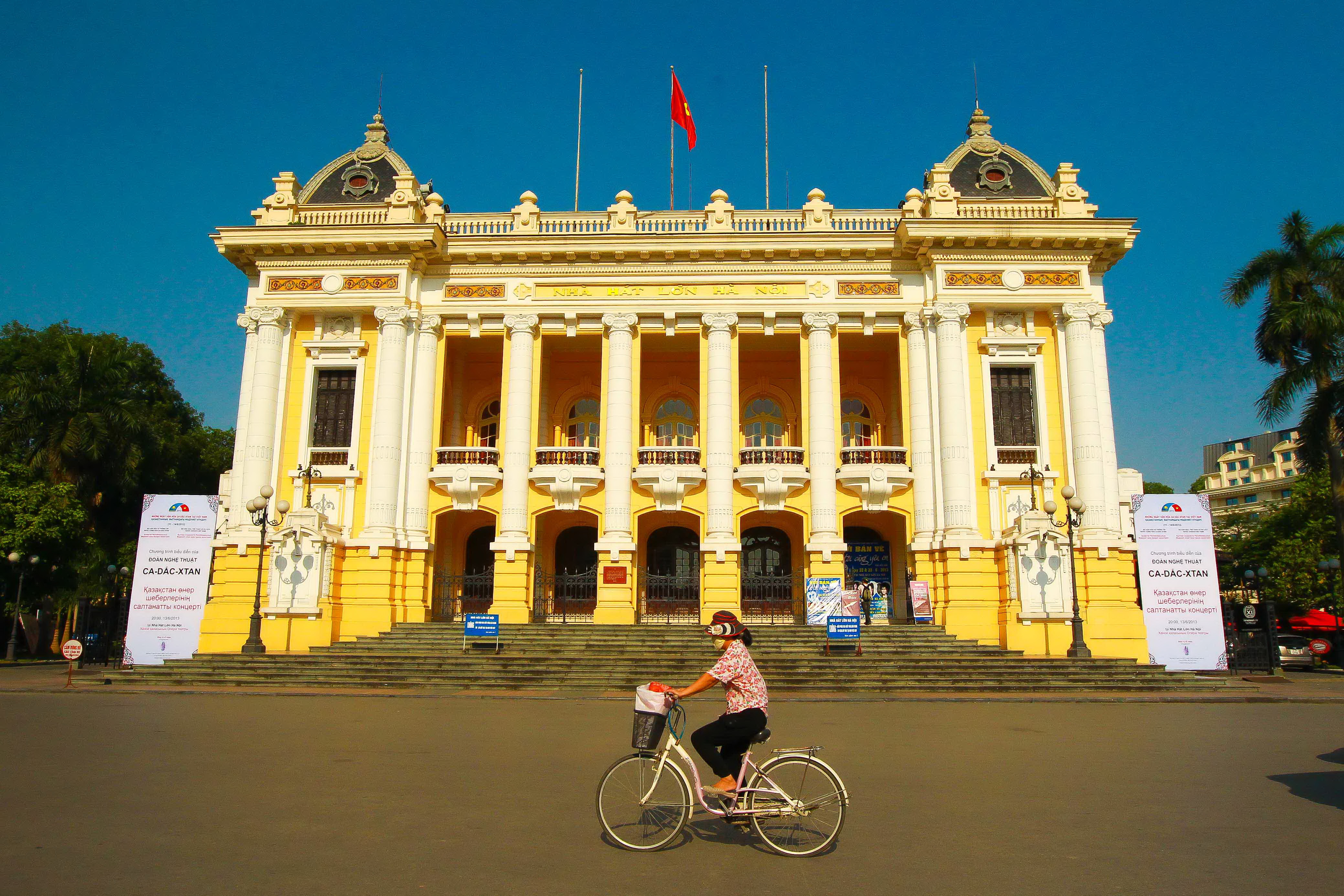The Ministry of Construction on June 13 issued an official letter saying that the ban on new constructions of French-architectural style included in its written order issued late last month be omitted as “it was a printing error”.
Ministry says no more French-architectural buildings
In its written order dated May 23, the ministry stipulated that local authorities aren’t to construct buildings that imitate classic French and European architecture styles.
The order also urged that construction works “comply with the principle of preserving traditional traits, suit natural conditions and features and show respect to local customs and culture to preserve regional identity and ensure that each municipality has its own architectural language.”
Prior to this, speaking to Tuoi Tre, Nguyen Dinh Toan, deputy construction minister, who had signed the former order, explained that the rampant construction of French-and European-styled mansions isn’t a good thing as they aren’t congruous with and thus blemish the localities’ modern-day architectural panorama.
“In my extensive research on French architecture for my Ph.D thesis, the ancient architectural styles we’ve been copying was mostly popular in other countries in the 1873-1910 period, after which they switched to A-deco, or contemporary architecture,” Toan noted.
In Vietnam under French colonization, good control and management was exerted on the French-styled edifices, which are architecturally proportionate, aesthetically congruous and pleasing to the eye as a result, he elaborated.
After the ban on constructing such buildings in 1926, which locals in Hanoi and Ho Chi Minh City strictly abided by, recent years have seen their prevalent ‘comeback’.
“These buildings don’t go well with the localities’ overall architecture while conflicting with today’s contemporary architectural trend. The ban in the former official letter is indeed a warning against this,” Toan concluded.
Undermining the ministry’s reputation
Though the ban has good reasons, in its June 13 official letter, the ministry reversed it, which has created quite a stir among local architects, lawyers and residents.
“The ban overturning has chipped away at the ministry’s reputation,” remarked lawyer Truong Xuan Tam, vice head of the Ba Ria-Vung Tau Lawyers Confederation.
Tam also pointed out that the former official letter isn’t legally valid for such monumental architectural management issues.
“The ministry should have issued a circular instead. The legally invalid documentation and lack of proper consultation and evaluation resulted in such an error,” he noted.
Tam also stressed that legal documents on architecture and construction don’t have any article that bans the designing and construction in French or European styles.
According to architect Nguyen Van Tat, deputy chair of the Vietnam Architect Association, several years ago, the association also convened a workshop in which local architects strongly warned against the rampant trend of constructing costly state-owned French-architectural buildings.
“However, the issue of an official ban on such buildings is quite unacceptable, as it conflicts with the boundless artistic creativity,” Tat added.
“The ban is reasonable only with new buildings which distort and unsuitably copy the French architectural styles, not with all such buildings, as many areas, such as Da Lat and the quarter of foreign backpackers in Hanoi, need to preserve the Western urban cultural values,” said architect Ngo Viet Nam Son.
Meanwhile, architect Nguyen Huu Thai, argued that “construction works must respect traditional and regional traits”, as ordered in the former official letter, is quite ambiguous, with architects across the world remaining divided and baffled regarding this.
Son also urged that concerned agencies should provide specific examples of constructional works which are both modern and respectful of traditional and regional features, as well as guidance on urban management to facilitate such construction.





















































